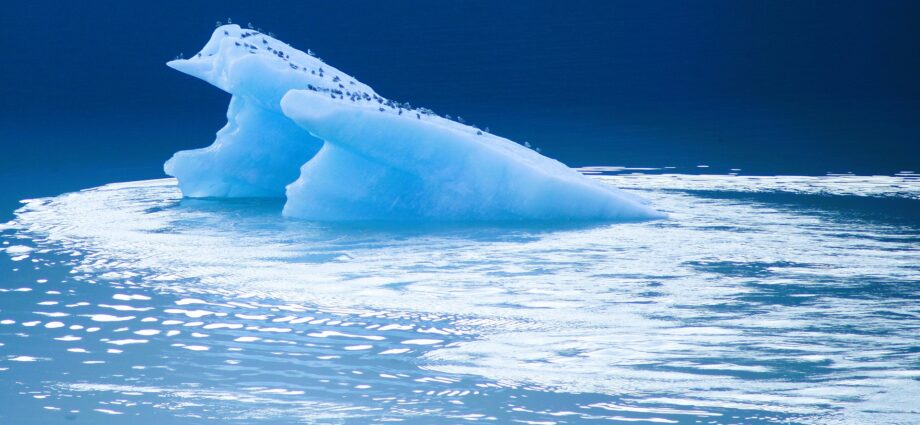
The melting ice in Antarctica is causing a dangerous slowdown of deep ocean currents, declining the turnover rate, a new report shows. What consequences would this have on the climate and marine life?
April 3, 2023
A new report published by the University of New South Wales in Australia in the journal Nature warns that rapidly melting ice in Antarctica is slowing down essential deep-water currents, posing a threat to climate and marine life.
The deep-water currents are responsible for overturning circulation, also known as abyssal ocean overturning, a vital component of the ocean’s nutrient and carbon cycles.
Abyssal water turning brings nutrients from the deep ocean to the surface, where they can be used by phytoplankton and other marine organisms.
This process also plays a role in regulating the Earth’s climate, as it helps to transport heat and carbon dioxide from the surface to the deep ocean.
Melting ice threatens this process by releasing more fresh water into the salty and dense ocean water. This slows down the Antarctic overturning process drastically, in turn warming the Souther Ocean up, thus melting more ice, creating a very harmful feedback loop, as stated by Professor Matthew England, an oceanographer at Sydney’s University of New South Wales, and study lead:
“One of the concerning things of this slowdown is that there can be feedback to further ocean warming at the base of the ice shelves around Antarctica. And that would lead to more ice melt, reinforcing or amplifying the original change.”
Professor England emphasised the danger of such a feedback loop, indicating that the deep waters that have already warmed up are now surrounding the most vulnerable ice sheets, accelerating their melting process.
The disastrous consequences of the oceanic system, particularly overturning, shutting down, have been portrayed in the 2004 thriller “The Day After Tomorrow”.
The fictional story depicts the catastrophic effects of global warming on Earth’s climate and the resulting superstorm that wreaks havoc on the planet.
It draws attention to the Atlantic Meridional Overturning Circulation, AMOC, and its role in cooling down the ocean and northwest Europe while monitoring deep-sea ecosystems.
The effects of AMOC’s southern counterpart shutting down would be as disastrous.
The researchers spent 35 million computing hours over the span of two years to construct their model, predicting that the deep water circulation in the Antarctic could slow down at twice the rate of the decline of its Northern Atlantic counterpart.
“If the oceans had lungs, this would be one of them,” Professor Matthew England said, referring to the Antarctic Overturning.
The report indicates that Antarctic overturning will slow down 42% by 2050 if current habits are not changed, especially the world’s fossil fuel-burning tendencies.
Even worse, the predictions of the report state that the overturning process will collapse by the end of the Century.
The ensuing effects would include a rise in sea levels, an unpredictable change in weather patterns, and would threaten the ecosystem by starving marine life of a vital source of nutrients.
When organisms perish, the nutrients they emit will sink to the bottom of the ocean. From there, they will be carried back to the surface by the overturning process through the currents and will feed phytoplankton, the fundamental pillar of the marine food chain.
Although the research did not quantify the effects of a slowdown in overturning, they asserted that it would “profoundly alter the ocean overturning of heat, fresh water, oxygen, carbon and nutrients, with impacts felt throughout the global ocean for centuries to come.”
Additionally, the authors warned that the deep ocean currents were primordial in determining the climate around the world, with the potential to shift rainfall drastically.
Subscribe to our newsletter.
The detrimental effects of our consumption of fossil fuels are felt throughout the world on a plethora of levels. The report is yet another warning portraying the disastrous consequences of our habits on the planet.
This article was originally published on IMPAKTER. Read the original article.


